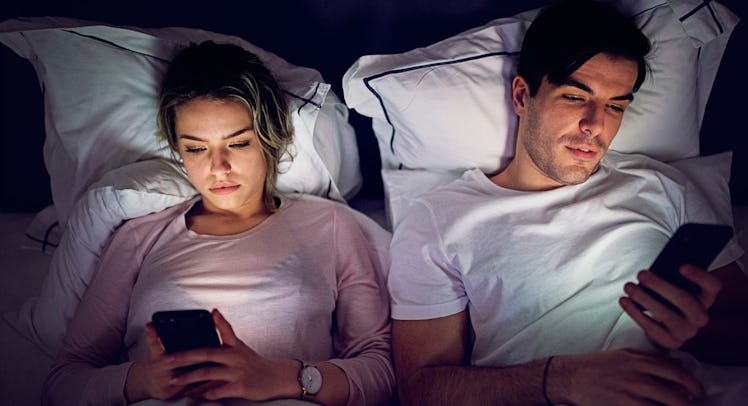Study Finds Phubbing Has Severe Negative Effects on Sexual Relationships
New research shows that "phone snubbing" is a shortcut to relationship disfunction.

A new study published in the Journal of Applied Social Psychology has found that phone snubbing, or phubbing, actually facilitates relationship dissatisfaction on an almost-subconscious level by creating emotional distance between romantic partners. Participants in the study had their reactions monitored as they watched a short video in which their conversation partner phubbed them “extensively, partially, or not at all.” The research aims to understand how phubbing breeds feelings similar to social ostracizing, and how, in a world dominated by smartphones and a 24-hour distraction, connections can create a worrying disconnect.
“People often ignore others with whom they are physically interacting in order to use their smartphone instead,” the study reads. “Phubbing, seems to have become normative in everyday communication.”
It’s pretty well documented that too much screen-time can cause a person to feel less satisfied in their relationship. One study found that, when a person feels like their partner was phubbing them, it “created conflict and led to lower levels of reported relationship satisfaction.” The decreased satisfaction can lead to less satisfaction in life overall, and increased levels of depression.
The study also notes that other research supports the idea that “predictors such as Internet addiction, fear of missing out, and self-control have been found to predict smartphone addiction, which in turn predicts phubbing behavior.”
To carry out the study, 128 people between the ages of 10 and 34 were broken up into three groups. The control group of 45 people wouldn’t be phubbed at all, 45 more were lightly phubbed, and 38 people were phubbed extensively. As the researchers expected, people in the group that was not being phubbed reported much higher levels of need satisfaction than members of the other two other groups.
Ultimately the study concludes that phubbing “violates fundamental human needs” and ultimately results in “negative communication outcomes.” Phubbing creates a kind of internal storm that makes us feel ignored and encourages us to, in turn, silence ourselves. These findings feel vital in an era when young adults use their phones for nearly double the amount of time they think they do. Imagine, then, how many people are creating situations in which their ability to connect with others is regularly compromised without even knowing it.
This article was originally published on